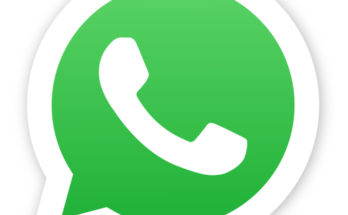Healthcare expenses can be unpredictable and, at times, overwhelming. When a medical emergency arises, the last thing anyone wants is to worry about arranging cash immediately. This is where hospital cashless insurance comes in, offering financial support without the need for upfront payments. Instead of you paying first and claiming later, the insurance provider directly settles the bill with the hospital. This convenience not only saves time but also reduces stress during critical situations.
What is a hospital cashless insurance?
Hospital cashless insurance is a type of health insurance arrangement where policyholders can get treatment at network hospitals without paying from their own pocket at the time of hospitalization. The insurance company settles the eligible medical expenses directly with the hospital, as per the policy coverage.
It works through network hospitals—healthcare facilities that have tie-ups with the insurer. When you are admitted to one of these hospitals, you only need to show your health insurance card or details, fill in a claim form, and the insurance provider will take care of the billing process.
hospital cashless insurance
The concept of hospital cashless insurance is designed to make healthcare more accessible and financially manageable. Whether you’re undergoing emergency treatment or a planned surgery, this facility eliminates the need to arrange large amounts of cash instantly.
The process typically involves:
Choosing a network hospital from the insurer’s list.
Pre-authorization for planned treatments or quick approval in emergencies.
The insurance company settling eligible bills directly with the hospital.
This arrangement has become increasingly popular due to the growing costs of medical care and the convenience it offers to patients and families.
Features of hospital cashless insurance [Completely Detailing]
Direct Settlement of Bills – Medical expenses covered under the policy are directly paid to the hospital by the insurer.
Wide Network of Hospitals – Most insurers have tie-ups with hundreds or thousands of hospitals, giving you multiple treatment location options.
Covers Emergencies & Planned Treatments – Whether it’s an accident or a scheduled surgery, cashless facilities can be used.
No Immediate Cash Requirement – Saves you from arranging large sums instantly during a medical emergency.
Pre-Authorization Process – For planned treatments, you can get pre-approval to ensure your claim will be settled directly.
Coverage for Various Expenses – Includes room rent, surgery charges, doctor fees, medication, diagnostic tests, etc., as per policy terms.
Reduced Paperwork – Compared to reimbursement claims, documentation is minimal.
Peace of Mind – Financial worries are reduced, allowing focus on recovery.
Availability in Multiple Plans – Offered in individual, family floater, and corporate health policies.
Digital Tracking – Many insurers offer mobile apps or online portals to track the claim status.
Pros of hospital cashless insurance [Use Table]
| Pros | Description |
|---|---|
| No Upfront Payment | Avoids the need to arrange cash during hospitalization. |
| Time-Saving | Quick admission and treatment without waiting for payment clearance. |
| Financial Relief | Reduces the financial stress during emergencies. |
| Wide Hospital Network | Access to multiple quality hospitals. |
| Easy Claim Process | Minimal paperwork and faster settlement. |
| Suitable for Emergencies | Especially beneficial for sudden, unexpected medical needs. |
| Coverage for Various Treatments | Includes surgeries, diagnostics, and post-hospitalization care. |
Cons of hospital cashless insurance [Use Table]
| Cons | Description |
|---|---|
| Limited to Network Hospitals | Facility available only at hospitals tied up with the insurer. |
| Possible Claim Rejections | If treatment is not covered under the policy, claim may be denied. |
| Partial Payments | Some expenses (non-medical or above limits) may need to be paid by the patient. |
| Pre-Authorization Delays | In planned procedures, approval might take time. |
| Not All Treatments Covered | Cosmetic or experimental procedures are often excluded. |
| Documentation Still Required | Though less, some paperwork is still mandatory. |
hospital cashless insurance Alternatives [Use Table]
| Alternative | Description |
|---|---|
| Reimbursement Health Insurance | Pay hospital bills first, then claim the amount from insurer later. |
| Critical Illness Insurance | Provides lump-sum payment upon diagnosis of a covered illness. |
| Personal Accident Insurance | Covers medical costs and offers compensation for accidental injuries. |
| Mediclaim Policies | Standard hospitalization coverage with either reimbursement or cashless facility. |
| Government Health Schemes | State or central government health coverage with free or subsidized treatment. |
| Employer-Provided Health Insurance | Corporate policies that may offer cashless or reimbursement options. |
hospital cashless insurance
In conclusion, hospital cashless insurance is an essential financial tool for managing unexpected medical expenses with ease. It offers the advantage of direct settlement, quick treatment access, and reduced stress during emergencies. However, it’s important to be aware of its limitations, such as the restriction to network hospitals and possible partial payments.


